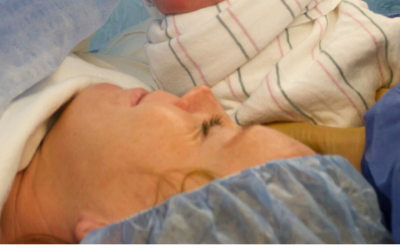
What other risk factors increase your likelihood of having preeclampsia again?
The Preeclampsia Registry in Action: Patient-reported preconceptional characteristics in the prediction of recurrent preeclampsia
Category: Risk
Lay Summary: One clinical risk factors for developing preeclampsia in pregnancy is having had preeclampsia before- this is called recurrent preeclampsia. Researchers in this study asked what other factors among persons with a history of preeclampsia can also help predict preeclampsia will occur again in a future pregnancy. Data from 1,028 persons in the Preeclampsia Registry with a history of preeclampsia were used to answer this question. Almost 10 years old now, the Preeclampsia Registry was built to create a partnership between preeclampsia survivors and researchers to help our understanding of preeclampsia. In this study, results showed several predictors of recurrent preeclampsia including: history of migraines, high blood pressure outside of pregnancy (called ‘chronic hypertension’), and first-degree relatives with cardiovascular disease or a placenta-related pregnancy complication.
Take home message: a history of migraines, chronic high blood pressure, and a family history of heart disease may increase your risk for developing preeclampsia in more than one pregnancy.
Link: https://pubmed.ncbi.nlm.nih.gov/35183928/
Citation: Bijl RC, Cornette JMJ, Brewer AN, Zwart IF, Franx A, Tsigas EZ, Koster MPH. Patient-reported preconceptional characteristics in the prediction of recurrent preeclampsia. Pregnancy Hypertens. 2022 Feb 10;28:44-50. doi: 10.1016/j.preghy.2022.02.003. Epub ahead of print. PMID: 35183928.
About Research Roundup
Each quarter, our team of researchers reviews the most current studies related to hypertensive disorders of pregnancy and selects those studies they feel will be of greatest interest to our community to summarize.
Special thanks to our volunteer research team, who under the leadership of Dr. Elizabeth Sutton, make Research Roundup possible: Alisse Hauspurg, MD Felicia LeMoine, MD Jenny Sones, PhD, DVM, and Robin Trupp, PhD, RN.
Related Articles

Recent findings in preeclampsia research have shown that preeclampsia likely has at least two variants – an early onset and a late onset variant. Early onset is typically defined as before 34 we...

Preeclampsia is a pregnancy complication marked by new-onset high blood pressure and signs of stress on organs such as the kidneys, liver, and brain. While much attention is often given to preterm dis...

Preeclampsia is a serious problem that can happen during pregnancy. It often affects the brain and can cause headaches, vision problems, strong reflexes, and seizures (called eclampsia). In this study...

Pregnancy offers a unique window into a woman’s future heart and cardiovascular health. Conditions such as hypertensive disorders of pregnancy (HDP) which include gestational hypertension, preec...

Heart disease, also called cardiovascular disease (CVD), is becoming more common in young women across the United States. Hypertensive disorders of pregnancy (HDP) is a group of conditions that includ...

